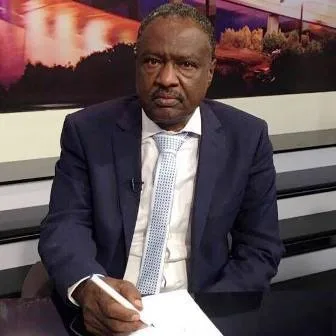Libya and Sudan

Rashid Abdel Rahim
My work with the Supreme Council for Peace afforded me opportunities to establish direct relationships and strong friendships with numerous southern leaders, foremost among them the late Brigadier Arok Thon Arok, one of the founding commanders of the Sudan People’s Liberation Movement (SPLM), who held key military, administrative, and legislative positions within the movement.
Arok once told me of a profound connection that had developed between them and the late Libyan leader Muammar Gaddafi. He recounted how Gaddafi had requested a high-level delegation, led by John Garang, to discuss the movement’s needs so that Libya could provide support.
Arok revealed that, while aboard the plane en route to the Libyan capital Tripoli, they had agreed not to request money under any circumstances—only weapons and military equipment. They also resolved that no member of the delegation would make any personal requests.
This principled stance greatly impressed Gaddafi, who not only met their demands but exceeded their expectations, granting them arms and supplies worth over $900 million at the time. He even went the extra mile by arranging dental work for one delegation member, who now holds a prominent position in his country.
This was not Gaddafi’s only direct intervention in Sudanese affairs. The Libyan colonel remained deeply involved in military meddling that exhausted the nation and its people—interference that, had it not occurred, might have altered Sudan’s history and present reality.
Those with long memories may recall the Libyan plane that attempted to bomb Sudan Radio, only to strike a distant section of the building and part of the adjacent home of Imam Sadiq al-Mahdi.
This botched attack on Sudan Radio reminded many Sudanese of a satirical wartime song by the artist Aisha al-Falatiya, mocking an aggressor during World War II with lyrics roughly translating to:
“A plane flies overhead, laden with bombs,
It comes to strike Khartoum,
But hits a donkey named Kaltoum,
And the milkmaid’s stall…”
People also remember the popular campaign under the May regime when Nimeiry refused Gaddafi’s requests for assistance in military interventions against African nations. An enraged Gaddafi demanded immediate repayment of Sudan’s debts, prompting Nimeiry to appeal to the Sudanese public, asking each citizen to donate just one piastre. This fundraising drive became known as the “Piastre of Dignity” campaign.
Today, as we witness renewed aggression from Gaddafi’s Libya and his protégé Haftar’s incursions into the border triangle, we are reminded of Gaddafi’s long history of military interference in Sudan—most notably in July, the very month we now find ourselves in.
The first major intervention came during the communist coup attempt by Hashim al-Atta on 2 July 1971, when Gaddafi forcibly diverted a plane carrying two senior members of the Revolutionary Council—Major Babiker al-Nur and Major Farouk Osman Hamdallah—to Tripoli before handing them over to President Nimeiry, who later executed them.
The second intervention saw Gaddafi hosting, training, and arming the Sudanese National Front forces, led by Imam Sadiq al-Mahdi of the Umma Party, Sharif Hussein al-Hindi of the Democratic Unionist Party, and Osman Khalid Mudawi of the Muslim Brotherhood.
Despite Libyan training and weapons, this coalition failed due to internal betrayals, poor operational planning, logistical failures in transport from Libya, and the insurgents’ shocking ignorance of Khartoum’s geography. The May regime exploited the attackers’ unfamiliarity with the city’s layout and their lack of uniforms to brand them as “mercenaries,” successfully turning public opinion against them.
This remains the largest armed campaign backed by Gaddafi against Nimeiry, ending in mass executions of participants and adding another dark chapter to Gaddafi’s long record of destructive meddling in Sudan’s affairs.
Shortlink: https://sudanhorizon.com/?p=6299

